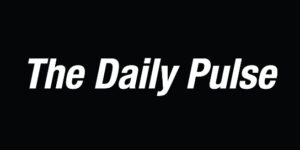Deciding whether to buy a home or continue renting is one of the most significant financial decisions many individuals face. Both options have their advantages and drawbacks, and the right choice depends on various factors including your financial situation, lifestyle preferences, and long-term goals. This article delves into the pros and cons of home ownership and renting, providing data-driven insights to help you make an informed decision.
The Case for Home Ownership
Pros:
- Building Equity
- Investment Potential: When you pay a mortgage, you’re investing in an asset that can appreciate over time. According to the Federal Housing Finance Agency, U.S. home prices have increased by an average of 5% annually over the past decade.
- Forced Savings: Regular mortgage payments can be seen as a form of forced savings, gradually increasing your net worth.
- Stability and Control
- Long-Term Residence: Owning a home provides stability, especially if you plan to stay in one place for several years.
- Customization: You have the freedom to renovate, decorate, and modify your property to suit your preferences without needing landlord approval.
- Tax Benefits
- Mortgage Interest Deduction: Homeowners may deduct mortgage interest and property taxes on their federal income tax returns, reducing overall tax liability.
- Capital Gains Exclusion: Profits from the sale of a primary residence may be excluded from capital gains tax (up to $250,000 for single filers, $500,000 for married couples filing jointly).
- Protection Against Inflation
- Fixed-Rate Mortgage Advantage: With a fixed-rate mortgage, your principal and interest payments remain constant, protecting you from rent inflation.
Cons:
- High Upfront Costs
- Down Payment: Typically requires 5–20% of the purchase price upfront.
- Closing Costs: Can range from 2–5% of the loan amount, including fees for appraisal, loan origination, and inspections.
- Ongoing Expenses
- Maintenance and Repairs: Homeowners are responsible for all upkeep, which can average 1–3% of the home’s value annually.
- Property Taxes and Insurance: These costs can increase over time and vary significantly by location.
- Less Flexibility
- Difficulty Relocating: Selling a home takes time and may not be practical if you need to move quickly.
- Market Risk: Property values can fluctuate, potentially leading to a loss if you need to sell during a downturn.
The Case for Renting
Pros:
- Flexibility
- Ease of Relocation: Renting allows you to move with relative ease, which is ideal for those with uncertain job situations or who prefer not to be tied down.
- Short-Term Commitment: Lease agreements can be as short as month-to-month, offering more adaptability.
- Lower Upfront Costs
- Security Deposit: Typically much less than a down payment, often equivalent to one or two months’ rent.
- No Closing Costs: Avoid expenses associated with buying a home.
- Limited Responsibility
- Maintenance Included: Landlords are generally responsible for repairs and maintenance, saving you time and money.
- No Property Taxes: Renters are not directly responsible for property taxes or homeowners insurance.
- Access to Amenities
- Facilities: Many rental properties offer amenities like gyms, pools, and security services included in the rent.
Cons:
- No Equity Building
- No Investment Return: Rent payments contribute to your landlord’s equity, not your own.
- Opportunity Cost: Over time, the money spent on rent could have been invested elsewhere.
- Rent Increases
- Variable Costs: Rent can increase at the end of a lease term, sometimes significantly, affecting your budget.
- Less Predictability: Without a long-term lease, you may face unexpected changes in housing costs.
- Limited Control Over Living Space
- Restrictions: Renovations or even minor modifications may be prohibited.
- Possibility of Eviction: Landlords may choose not to renew leases, forcing you to relocate.
- No Tax Benefits
- Lack of Deductions: Renters do not receive the same tax advantages that homeowners enjoy.
Key Factors to Consider
- Financial Readiness
- Credit Score: A higher credit score can secure better mortgage rates.
- Debt-to-Income Ratio: Lenders prefer a DTI ratio below 43%.
- Savings: Ensure you have enough for a down payment, closing costs, and an emergency fund.
- Market Conditions
- Housing Market Trends: Analyze whether home prices in your desired area are rising or falling.
- Interest Rates: Lower interest rates make mortgages more affordable.
- Time Horizon
- Length of Stay: If you plan to stay in one place for at least 5–7 years, buying may be more advantageous.
- Career Stability: Consider job security and the likelihood of needing to relocate.
- Personal Preferences
- Lifestyle: Do you prefer the freedom to customize your living space?
- Responsibility Tolerance: Are you prepared to handle maintenance and repairs?
Calculating the Cost
Use tools like the “Rent vs. Buy” calculator provided by financial institutions or real estate websites. These calculators consider factors such as:
- Monthly Rent vs. Mortgage Payments
- Home Price and Appreciation Rate
- Rent Inflation Rate
- Taxes and Insurance
- Investment Returns on Savings
Tailoring the Decision to Your Situation
There’s no one-size-fits-all answer to whether you should buy a home or continue renting. It depends on your financial situation, life plans, and personal preferences. Homeownership can be a valuable investment and provide a sense of stability, but it also comes with significant responsibilities and costs. Renting offers flexibility and fewer obligations but doesn’t build equity or provide long-term financial benefits.
Before making a decision, conduct a thorough assessment of your circumstances and consider consulting with financial advisors or real estate professionals.

